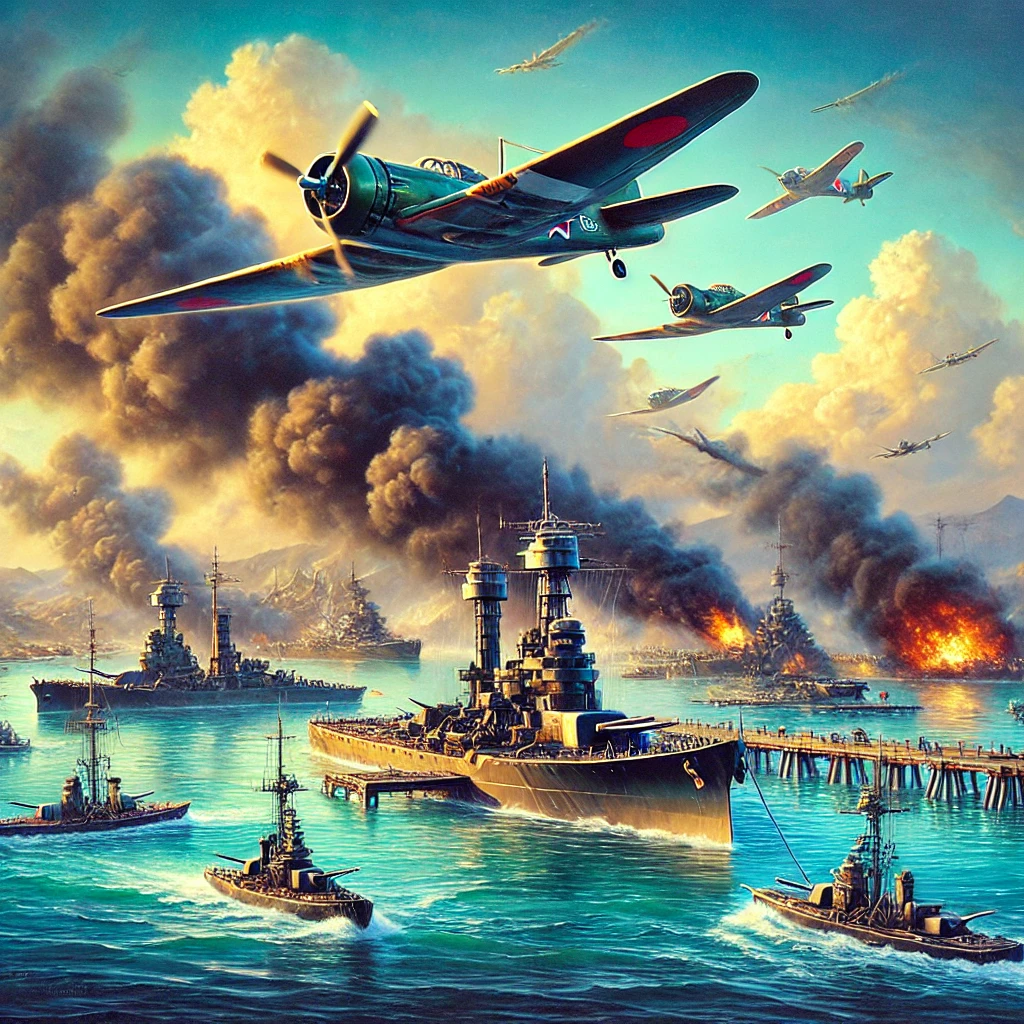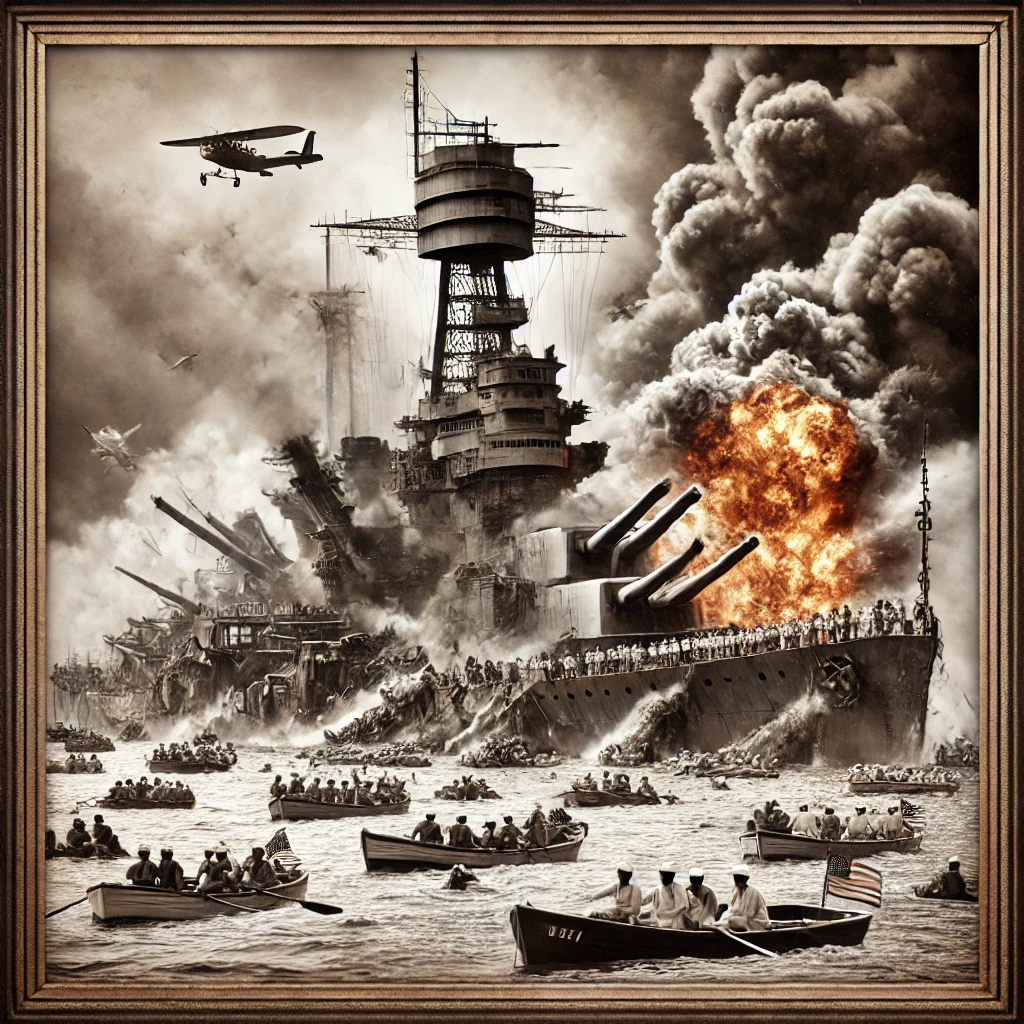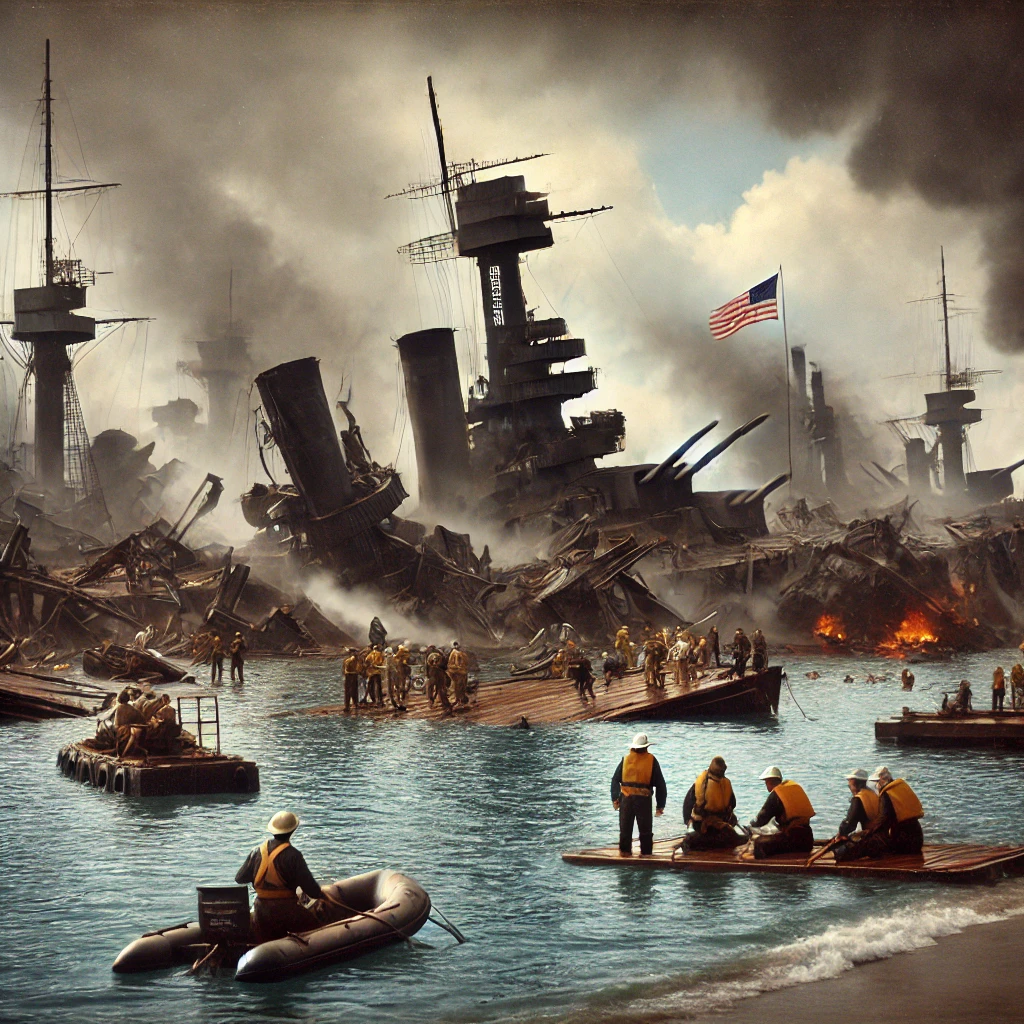December 7, 1941, is etched into history as a day of unprecedented shock and loss. Early that Sunday morning, the Imperial Japanese Navy executed a meticulously planned surprise attack on Pearl Harbor, a key U.S. naval base in Hawaii. The assault involved over 350 aircraft and targeted battleships, airfields, and other military installations. Within hours, more than 2,400 Americans lost their lives, and numerous ships and aircraft were destroyed or severely damaged. President Franklin D. Roosevelt later described this event as “a date which will live in infamy,” encapsulating the profound impact the attack had on the nation.

The attack was not only a tactical operation but also a strategic move by Japan to disable the U.S. Pacific Fleet. Japan aimed to gain a decisive advantage in the Pacific as it expanded its empire in East Asia and the Pacific islands. However, the attack had far-reaching consequences that Japan did not anticipate.
A Nation United for War
The attack on Pearl Harbor galvanized the American public and government, igniting a wave of patriotism and resolve. On December 8, 1941, the United States declared war on Japan, formally entering World War II. This marked a pivotal shift in the global conflict, as the U.S. mobilized its vast resources and industrial capacity to support the Allied powers.
The sense of unity and determination was unprecedented. Across the country, citizens enlisted in the military, worked in war industries, and participated in efforts to support the troops overseas. Pearl Harbor transformed the United States from a nation largely adhering to isolationist policies into a major world power deeply involved in international affairs.

Legacy and Lessons of Pearl Harbor
The attack on Pearl Harbor left a lasting imprint on both military strategy and public consciousness. Strategically, it underscored the importance of intelligence and preparedness. Failures in communication and a lack of readiness at Pearl Harbor led to significant changes in how the U.S. armed forces operated. The establishment of the Department of Defense and the reorganization of military command structures were direct responses to the lessons learned from that day.
Today, Pearl Harbor serves as a solemn reminder of the cost of war and the resilience of the human spirit. The USS Arizona Memorial, which stands above the sunken battleship, is a place of reflection and tribute to those who lost their lives. Every year, ceremonies commemorate the attack, honoring the bravery of the individuals who served and the sacrifices made by countless others.
A Catalyst for Change

Pearl Harbor was more than a tragedy; it was a turning point that shaped the course of the 20th century. It propelled the United States into a leadership role on the global stage and set the foundation for the post-war international order. The attack and its aftermath remind us of the fragility of peace and the enduring need for vigilance, diplomacy, and unity in the face of adversity.
The events of December 7, 1941, continue to resonate, teaching lessons about the perils of underestimating threats and the power of resilience. As we remember that fateful day, we honor the sacrifices that paved the way for a more secure and interconnected world.
